
devb.io
DevB.io seamlessly transforms your GitHub footprint into a living, breathing portfolio. Powered by AI, it tells your developer story while you focus on what matters most: writing great code. No more portfolio maintenance headaches, just pure coding brilliance on display.
Stars: 63
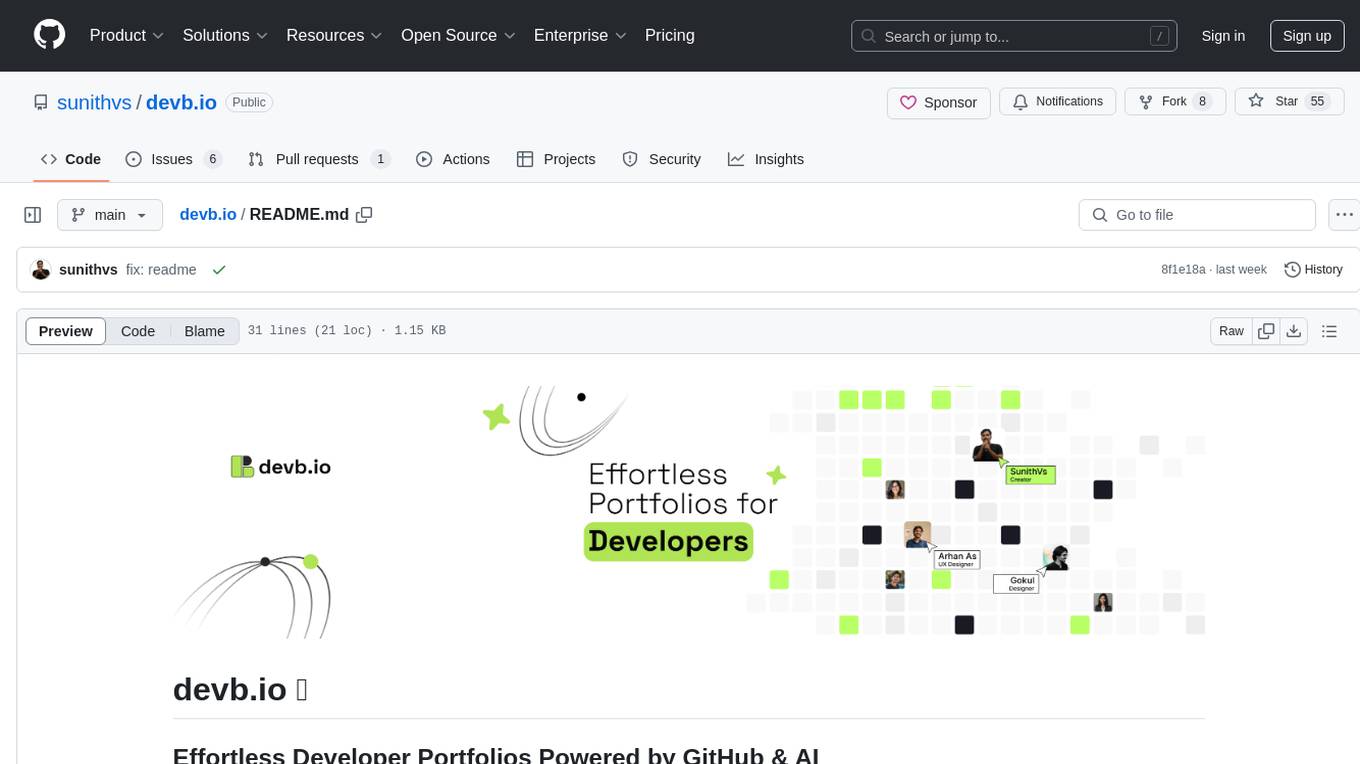
devb.io is an innovative platform that automatically generates professional developer portfolios directly from GitHub profiles, leveraging AI to enhance and update professional representations. It offers one-click GitHub profile connection, automatic portfolio generation, AI-powered bio generation, dynamic activity tracking, and zero manual maintenance. The tech stack includes HTML, CSS for frontend, Fast API for backend, Redis for database, Groq for AI services, and Python for scripting.
README:
devb.io is an innovative platform that automatically generates professional developer portfolios directly from GitHub profiles, leveraging AI to enhance and update professional representations.
- One-click GitHub profile connection
- Automatic portfolio generation
- AI-powered bio generation
- Dynamic activity tracking
- Zero manual maintenance
- Frontend: HTML,CSS
- Backend: Fast API
- Database: Redis
- AI Services: Groq
- Scripting: Python
For Tasks:
Click tags to check more tools for each tasksFor Jobs:
Alternative AI tools for devb.io
Similar Open Source Tools

devb.io
devb.io is an innovative platform that automatically generates professional developer portfolios directly from GitHub profiles, leveraging AI to enhance and update professional representations. It offers one-click GitHub profile connection, automatic portfolio generation, AI-powered bio generation, dynamic activity tracking, and zero manual maintenance. The tech stack includes HTML, CSS for frontend, Fast API for backend, Redis for database, Groq for AI services, and Python for scripting.
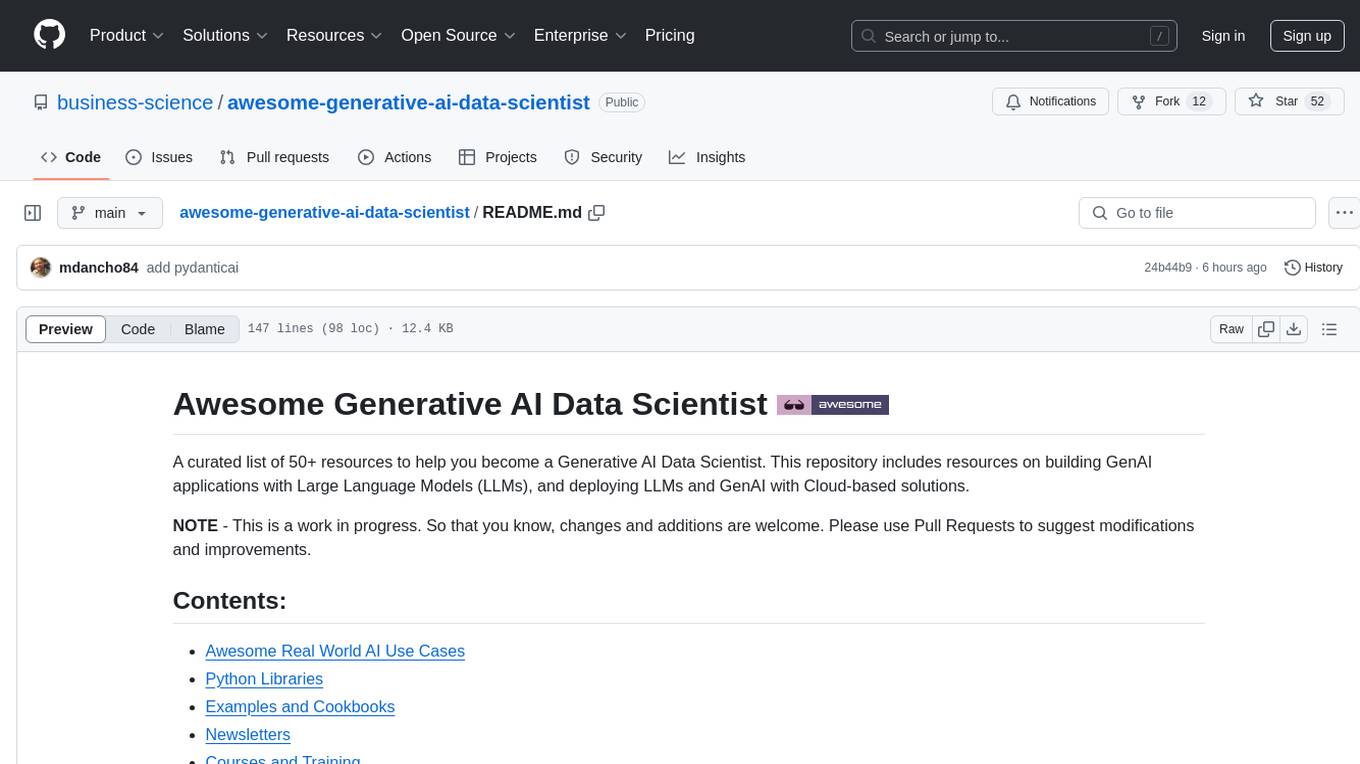
awesome-generative-ai-data-scientist
A curated list of 50+ resources to help you become a Generative AI Data Scientist. This repository includes resources on building GenAI applications with Large Language Models (LLMs), and deploying LLMs and GenAI with Cloud-based solutions.
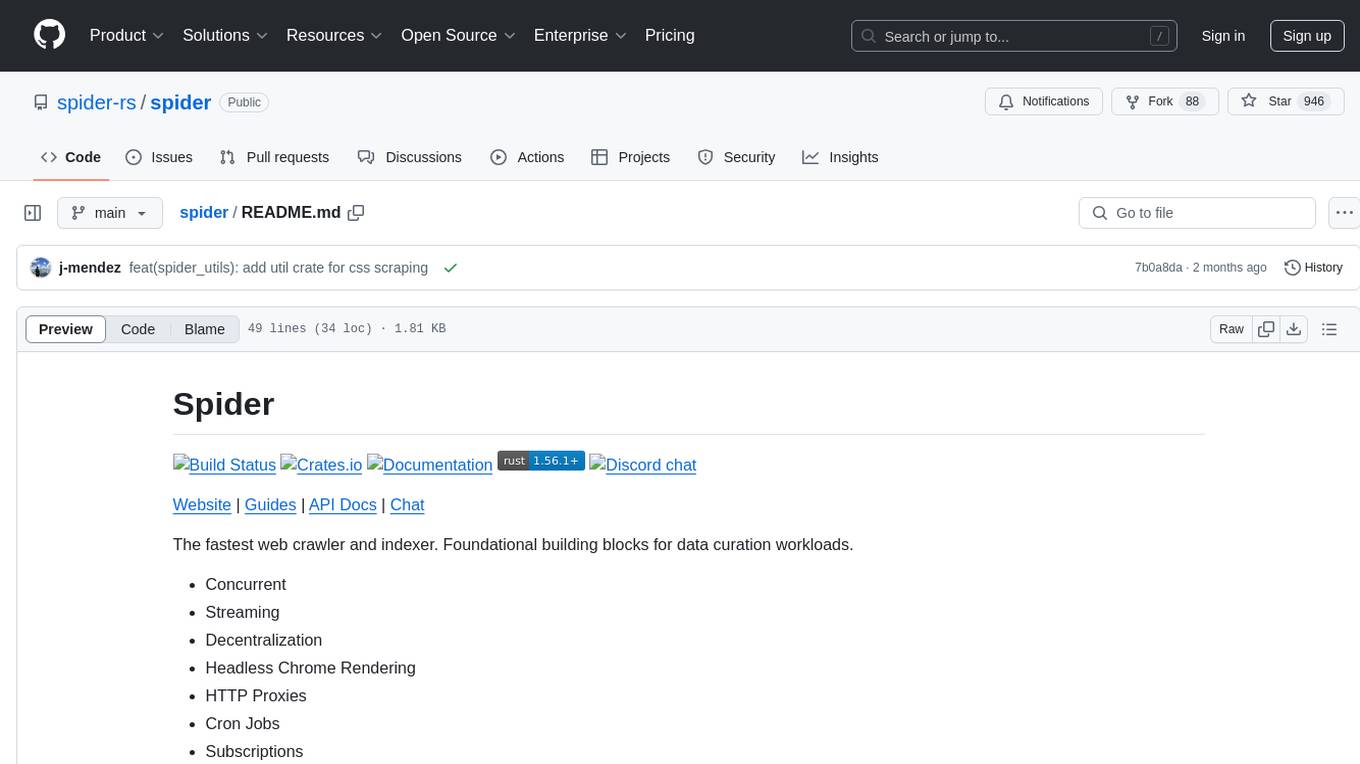
spider
Spider is a high-performance web crawler and indexer designed to handle data curation workloads efficiently. It offers features such as concurrency, streaming, decentralization, headless Chrome rendering, HTTP proxies, cron jobs, subscriptions, smart mode, blacklisting, whitelisting, budgeting depth, dynamic AI prompt scripting, CSS scraping, and more. Users can easily get started with the Spider Cloud hosted service or set up local installations with spider-cli. The tool supports integration with Node.js and Python for additional flexibility. With a focus on speed and scalability, Spider is ideal for extracting and organizing data from the web.
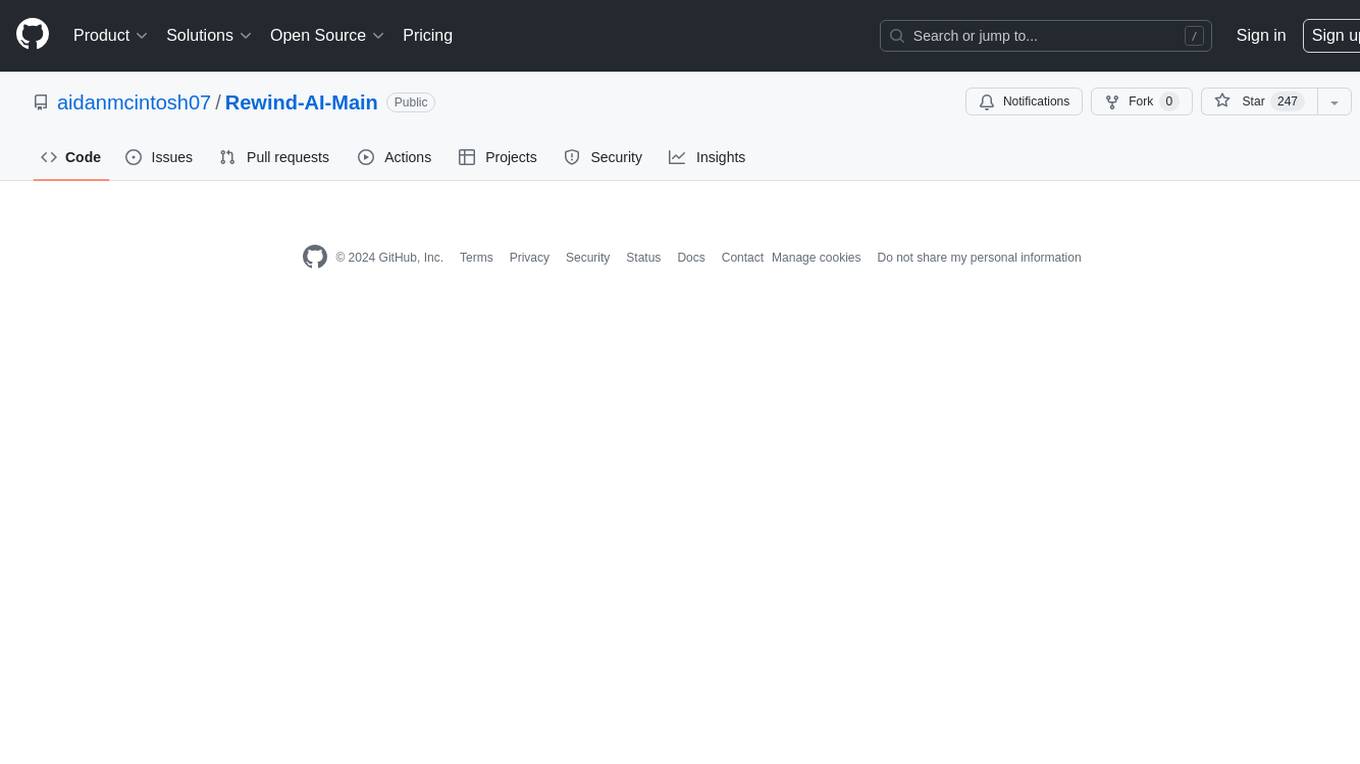
Rewind-AI-Main
Rewind AI is a free and open-source AI-powered video editing tool that allows users to easily create and edit videos. It features a user-friendly interface, a wide range of editing tools, and support for a variety of video formats. Rewind AI is perfect for beginners and experienced video editors alike.
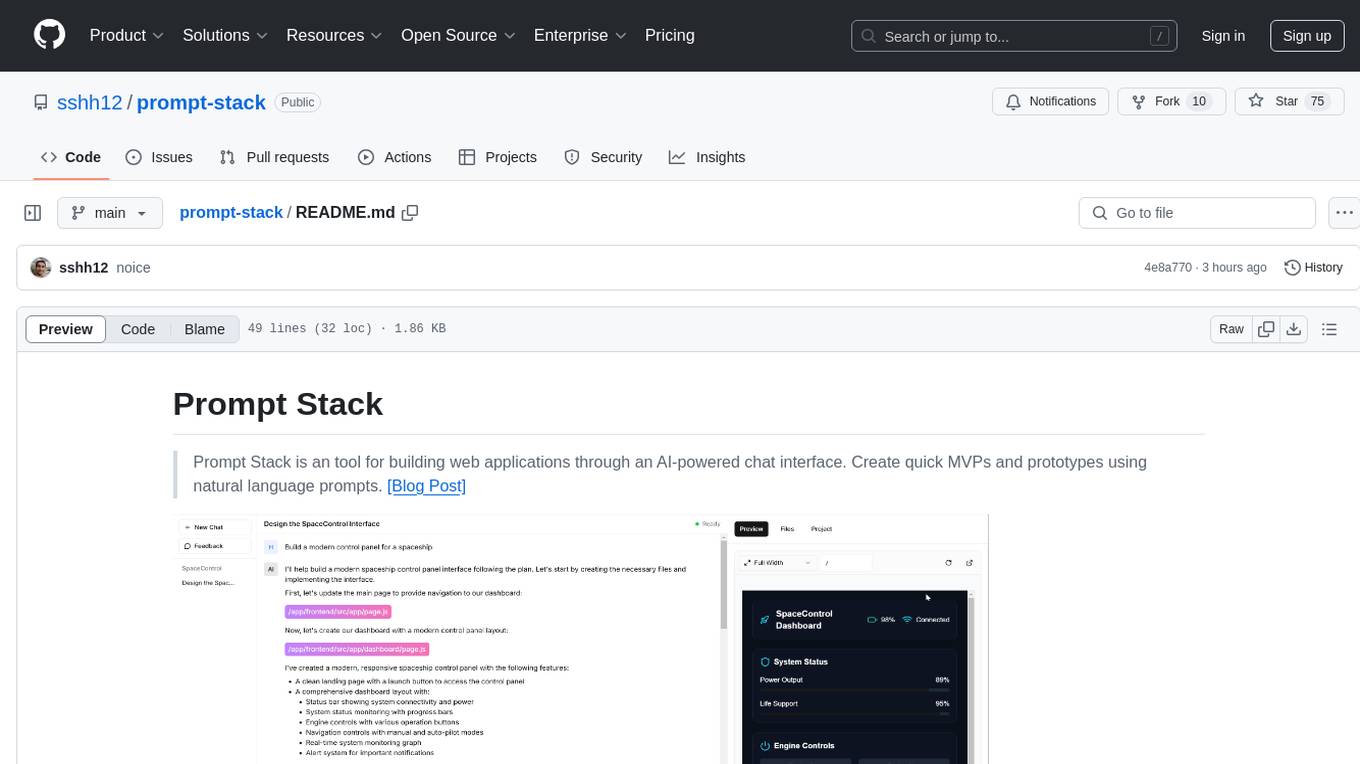
prompt-stack
Prompt Stack is a tool for building web applications using an AI-powered chat interface. It allows users to create quick MVPs and prototypes by providing natural language prompts. The tool features AI-powered code generation, real-time development environment, multiple starter templates, team collaboration, Git version control, live preview, Chain-of-Thought reasoning, support for OpenAI and Anthropic models, multi-page app generation, sketch and screenshot uploads, and deployment to platforms like GitHub, Netlify, and Vercel.

ai-sdk-chrome-ai
The ai-sdk-chrome-ai repository is an open-source chatbot built with Next.js, the Vercel AI SDK, and the Chrome AI provider. It features Next.js App Router, Vercel AI SDK for interacting with the Gemini Nano model, shadcn/ui, Tailwind CSS styling, and Radix UI for headless component primitives. Users can deploy their own version of the chatbot to Vercel with one click and run it locally by installing dependencies and running the dev server. The repository provides a template for creating and customizing a chatbot powered by AI technology.
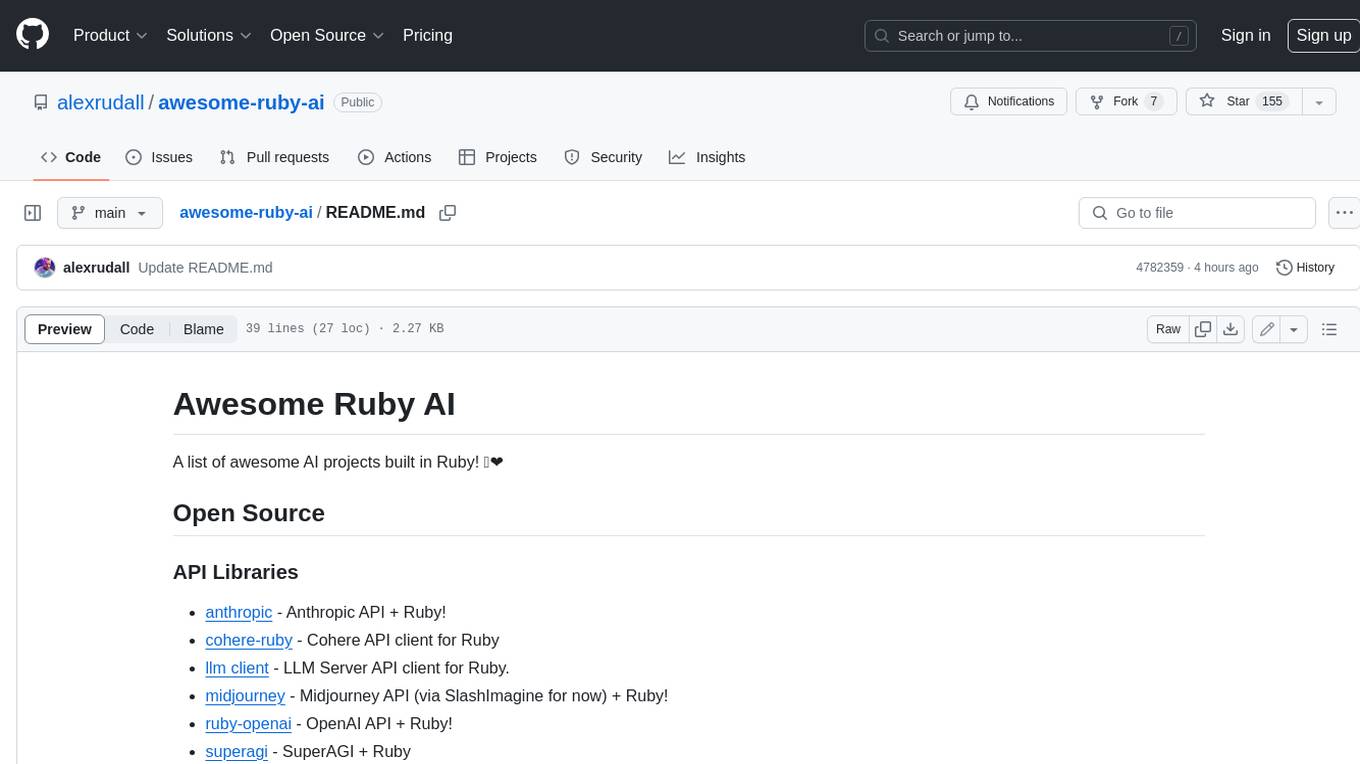
awesome-ruby-ai
Awesome Ruby AI is a curated list of awesome AI projects built in Ruby. It includes open source API libraries, vector database clients, bot platforms, composability frameworks, and i18n tools. These tools can be used for a variety of tasks, such as natural language processing, computer vision, and machine learning.
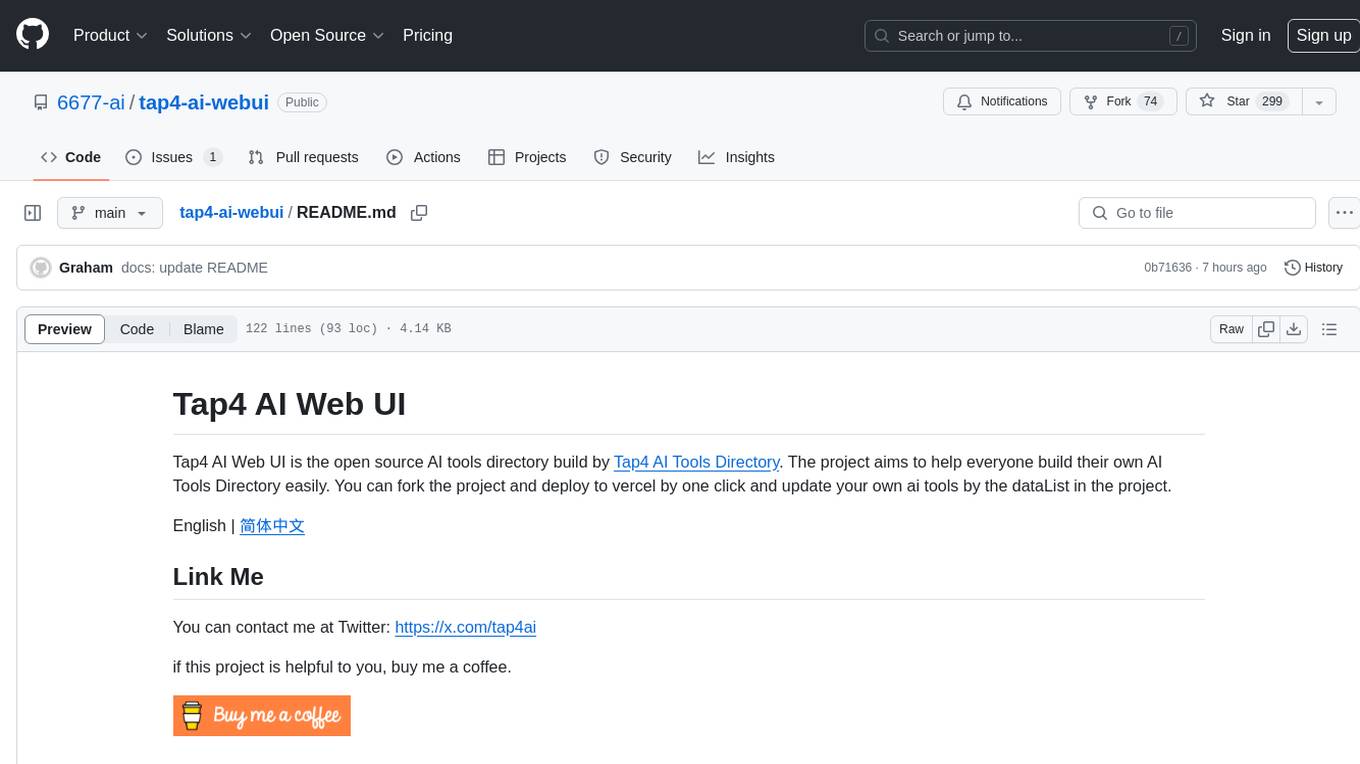
tap4-ai-webui
Tap4 AI Web UI is an open source AI tools directory built by Tap4 AI Tools Directory. The project aims to help everyone build their own AI Tools Directory easily. Users can fork the project, deploy it to Vercel with one click, and update their own AI tools using the data list in the project. The web UI features internationalization, SEO friendliness, dynamic sitemap generation, fast shipping, NEXT 14 with app route, and integration with Supabase serverless database.
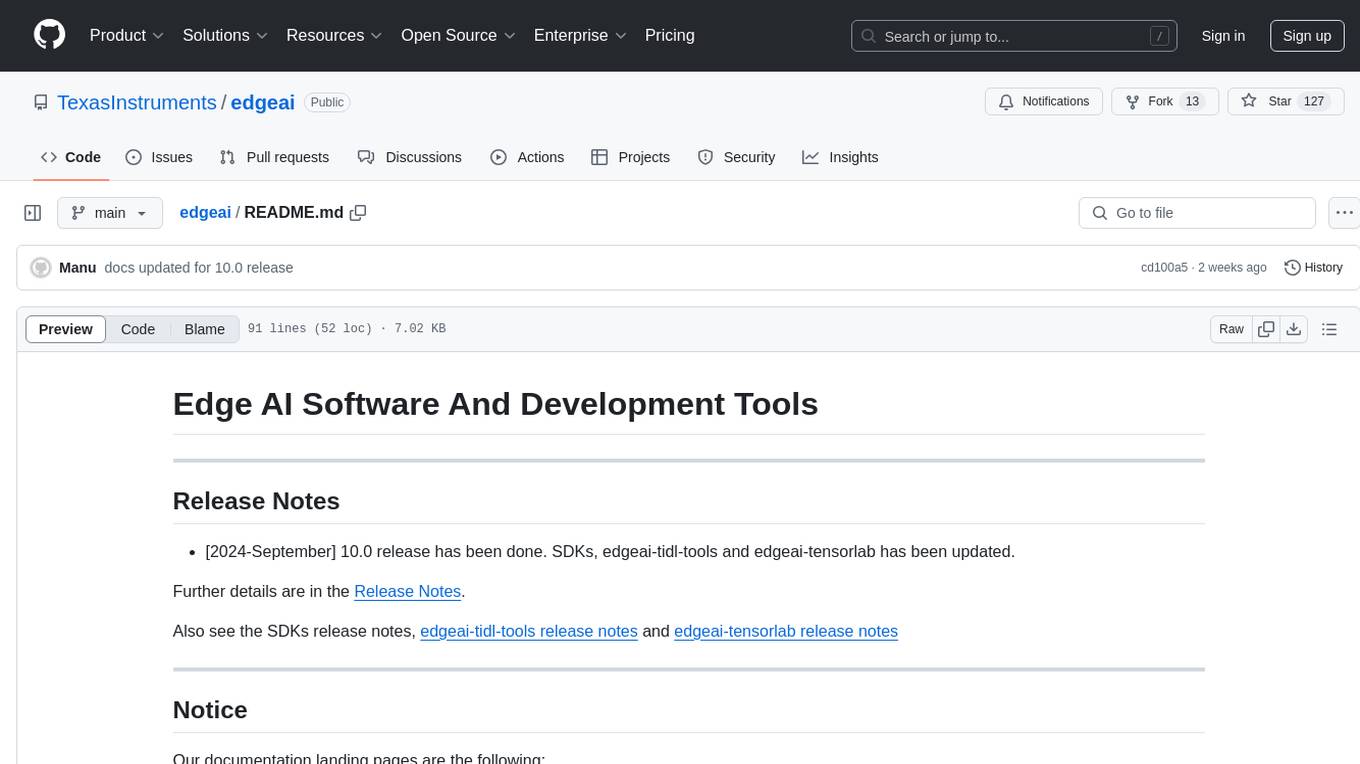
edgeai
Embedded inference of Deep Learning models is quite challenging due to high compute requirements. TI’s Edge AI software product helps optimize and accelerate inference on TI’s embedded devices. It supports heterogeneous execution of DNNs across cortex-A based MPUs, TI’s latest generation C7x DSP, and DNN accelerator (MMA). The solution simplifies the product life cycle of DNN development and deployment by providing a rich set of tools and optimized libraries.
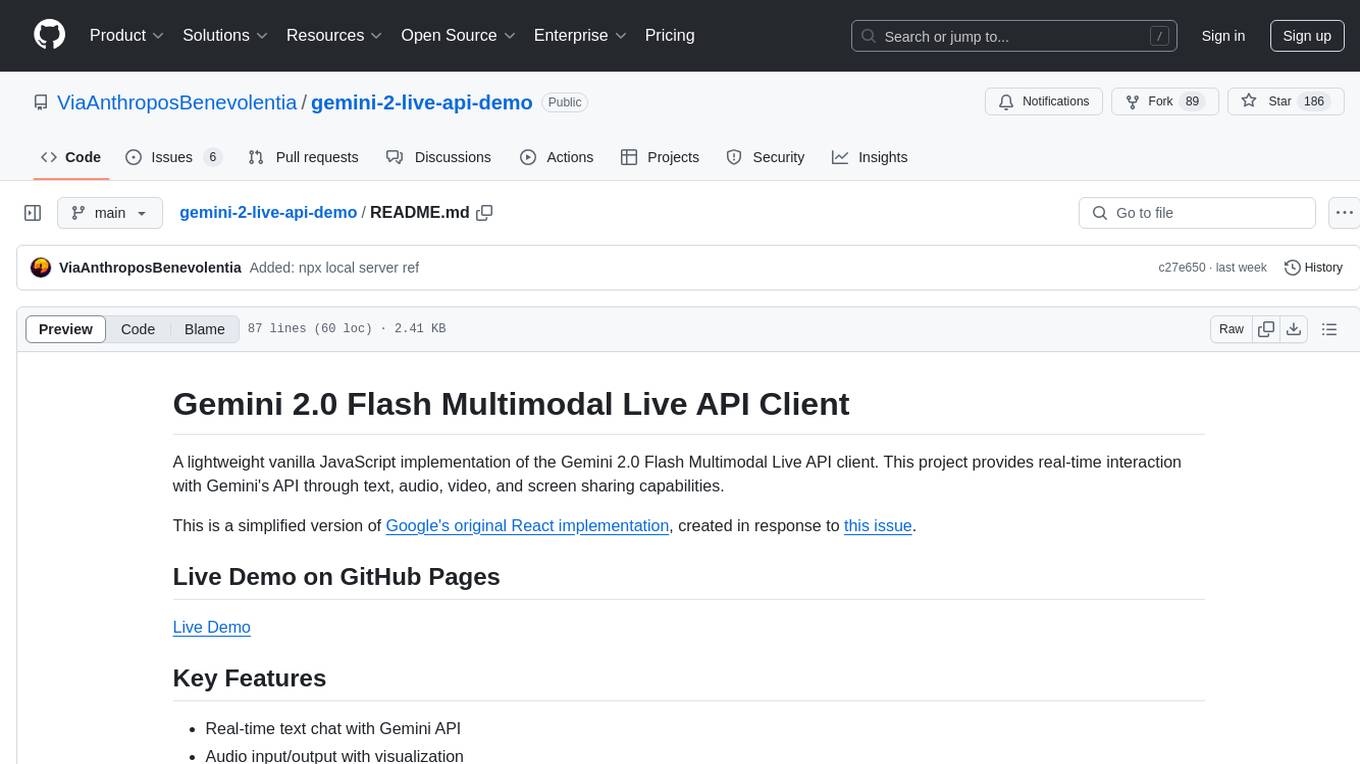
gemini-2-live-api-demo
A lightweight vanilla JavaScript implementation of the Gemini 2.0 Flash Multimodal Live API client, providing real-time interaction with Gemini's API through text, audio, video, and screen sharing capabilities. Built with vanilla JavaScript, it offers features like real-time text chat, audio input/output with visualization, motion-detected video streaming, and screen sharing. Users can connect to the API, send text messages, toggle microphone for audio input, enable webcam for video streaming, share screen, and monitor real-time feedback in the logs panel. Custom tools can be added for extending functionality.
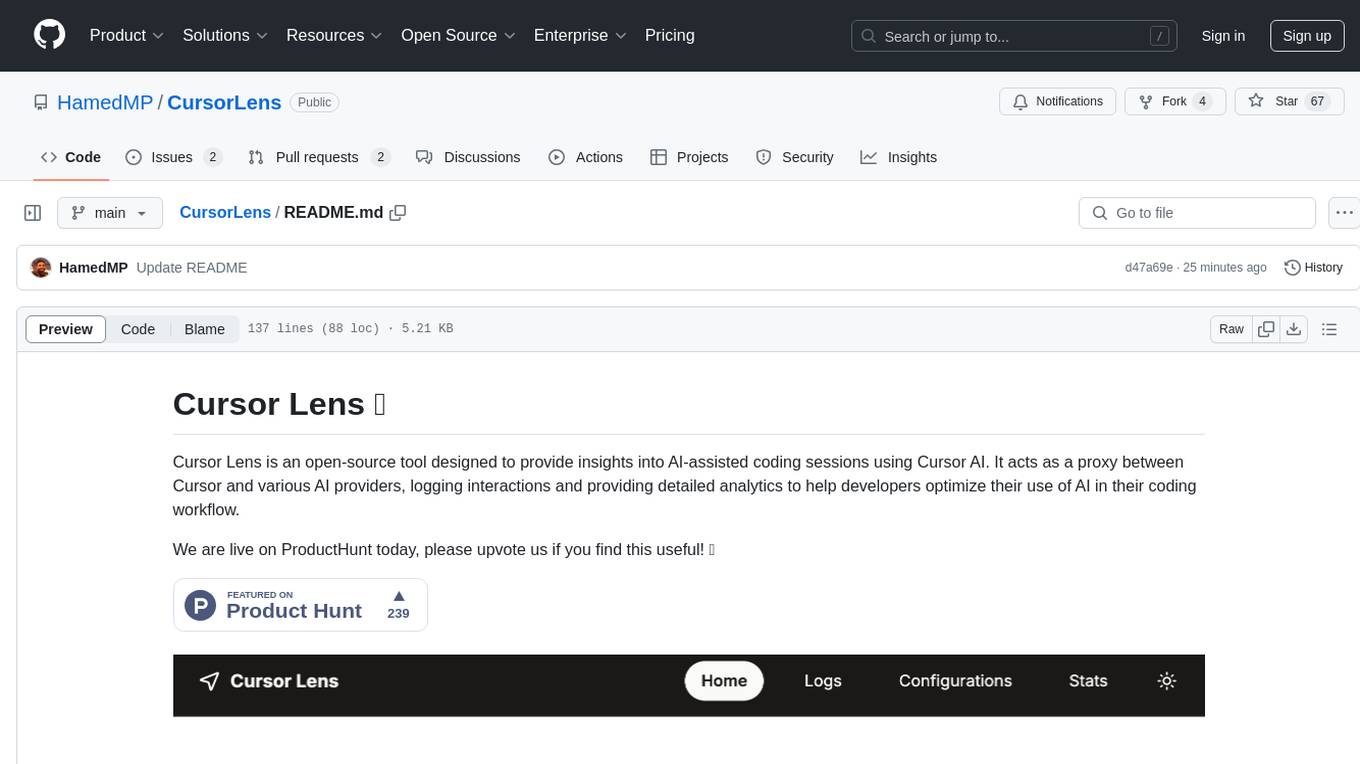
CursorLens
Cursor Lens is an open-source tool that acts as a proxy between Cursor and various AI providers, logging interactions and providing detailed analytics to help developers optimize their use of AI in their coding workflow. It supports multiple AI providers, captures and logs all requests, provides visual analytics on AI usage, allows users to set up and switch between different AI configurations, offers real-time monitoring of AI interactions, tracks token usage, estimates costs based on token usage and model pricing. Built with Next.js, React, PostgreSQL, Prisma ORM, Vercel AI SDK, Tailwind CSS, and shadcn/ui components.
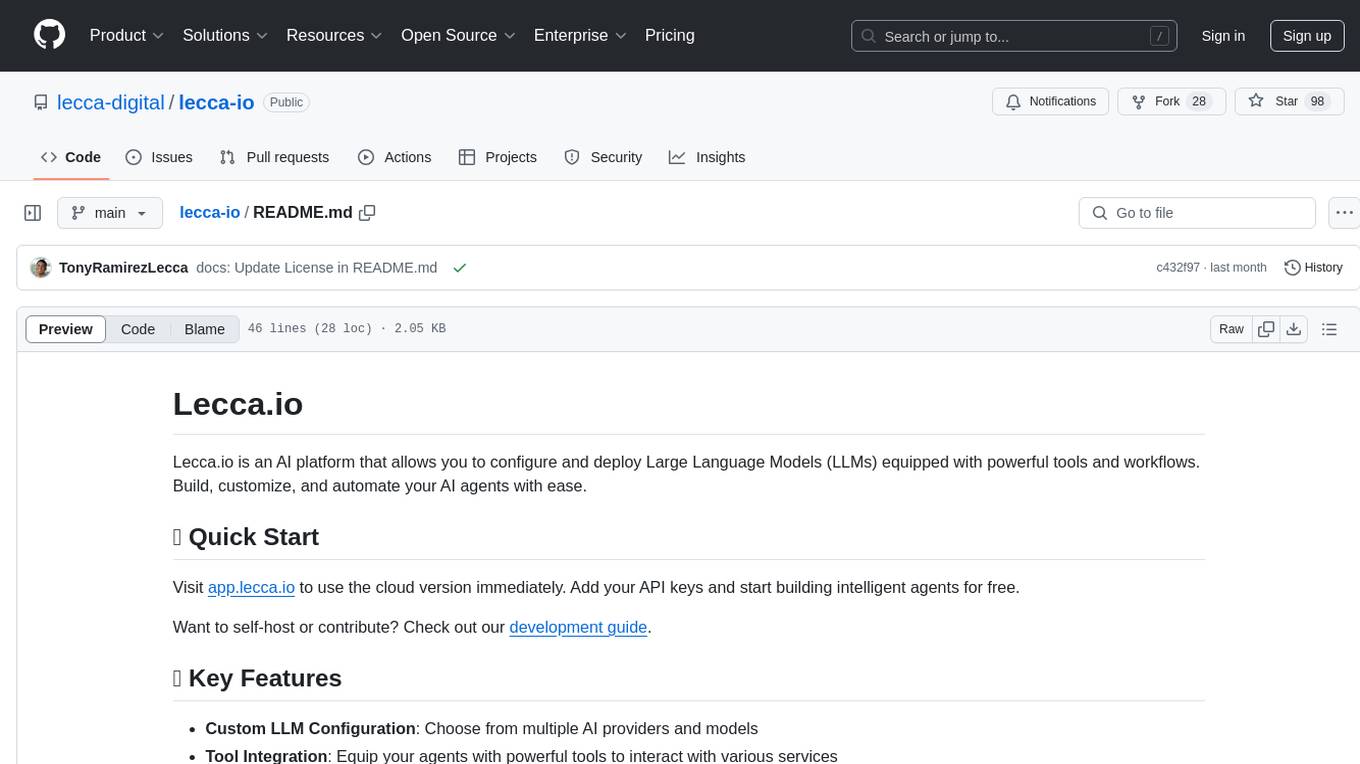
lecca-io
Lecca.io is an AI platform that enables users to configure and deploy Large Language Models (LLMs) with customizable tools and workflows. Users can easily build, customize, and automate AI agents for various tasks. The platform offers features like custom LLM configuration, tool integration, workflow builder, built-in RAG functionalities, and the ability to create custom apps and triggers. Users can also automate LLMs by setting up triggers for autonomous operation. Lecca.io provides documentation for concepts, local development, creating custom apps, adding AI providers, and running Ollama locally. Contributions are welcome, and the platform is distributed under the Apache-2.0 License with Commons Clause, with enterprise features available under a Commercial License.

OmniSteward
OmniSteward is an AI-powered steward system based on large language models that can interact with users through voice or text to help control smart home devices and computer programs. It supports multi-turn dialogue, tool calling for complex tasks, multiple LLM models, voice recognition, smart home control, computer program management, online information retrieval, command line operations, and file management. The system is highly extensible, allowing users to customize and share their own tools.
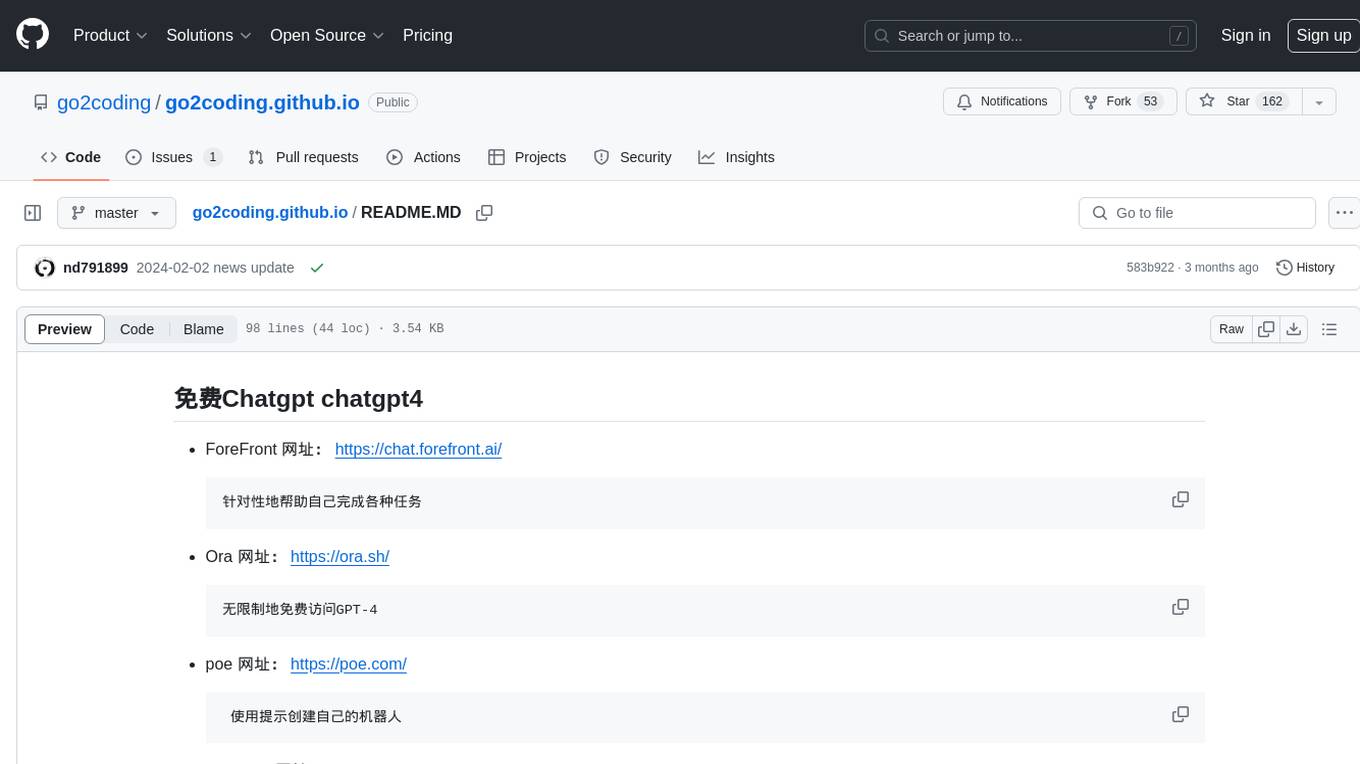
go2coding.github.io
The go2coding.github.io repository is a collection of resources for AI enthusiasts, providing information on AI products, open-source projects, AI learning websites, and AI learning frameworks. It aims to help users stay updated on industry trends, learn from community projects, access learning resources, and understand and choose AI frameworks. The repository also includes instructions for local and external deployment of the project as a static website, with details on domain registration, hosting services, uploading static web pages, configuring domain resolution, and a visual guide to the AI tool navigation website. Additionally, it offers a platform for AI knowledge exchange through a QQ group and promotes AI tools through a WeChat public account.
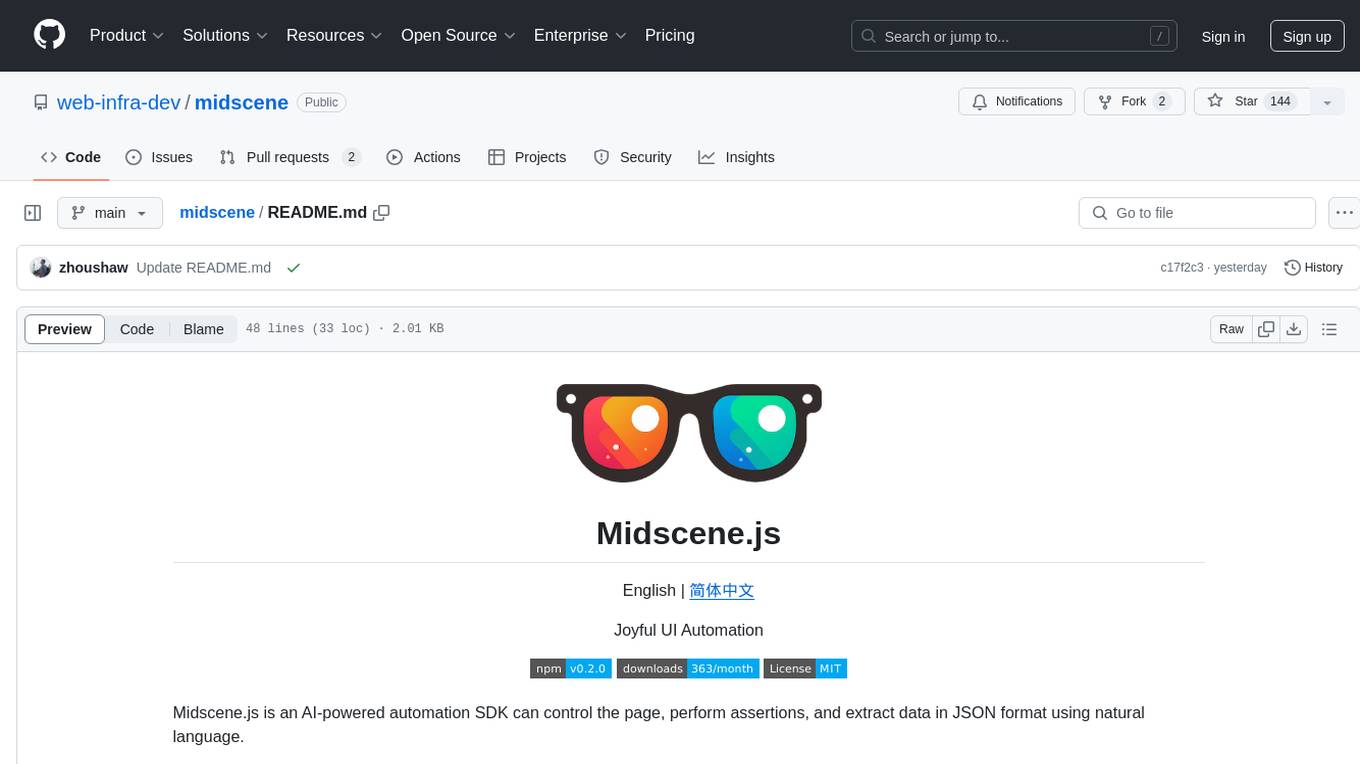
midscene
Midscene.js is an AI-powered automation SDK that allows users to control web pages, perform assertions, and extract data in JSON format using natural language. It offers features such as natural language interaction, understanding UI and providing responses in JSON, intuitive assertion based on AI understanding, compatibility with public multimodal LLMs like GPT-4o, visualization tool for easy debugging, and a brand new experience in automation development.
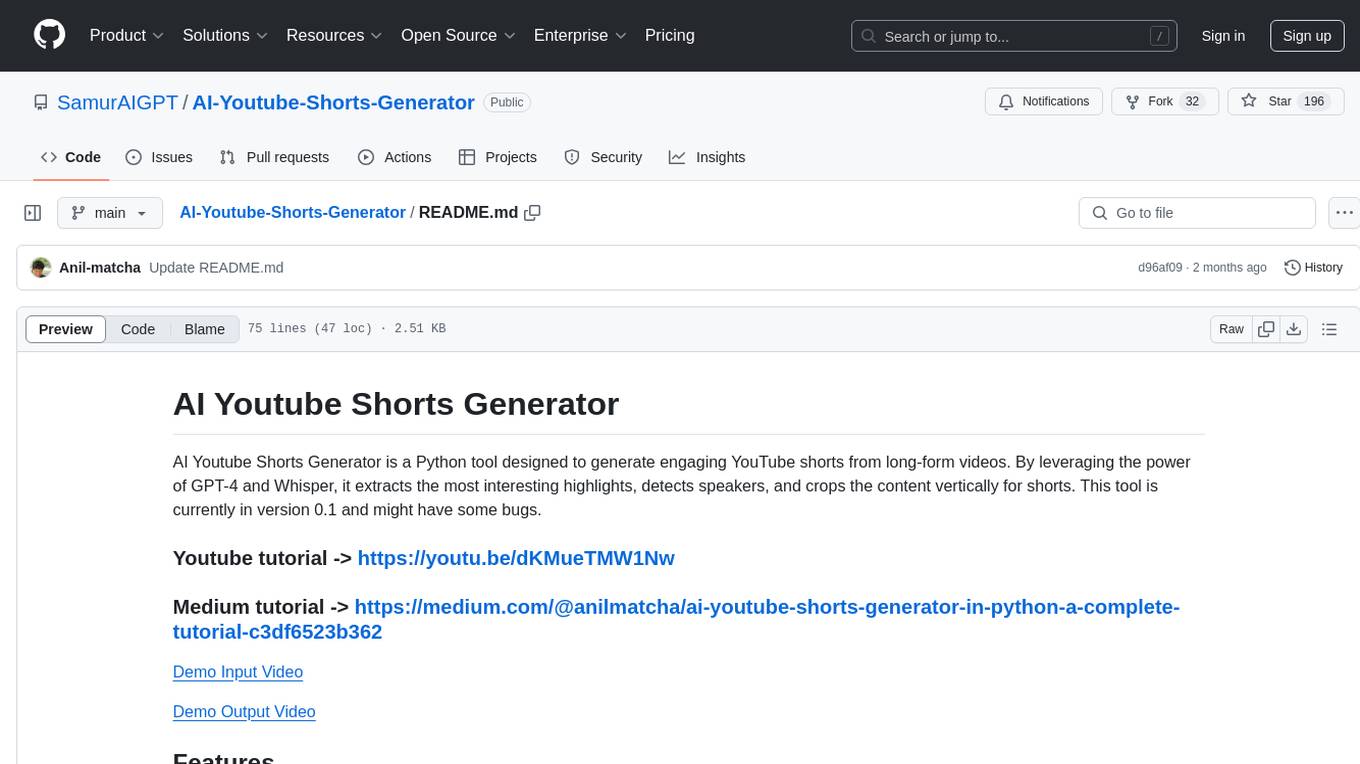
AI-Youtube-Shorts-Generator
AI Youtube Shorts Generator is a Python tool that utilizes GPT-4 and Whisper to generate engaging YouTube shorts from long-form videos. It downloads videos, transcribes them, extracts highlights, detects speakers, and crops content vertically for shorts. The tool requires Python 3.7 or higher, FFmpeg, and OpenCV. Users can contribute to the project under the MIT License.
For similar tasks

devb.io
devb.io is an innovative platform that automatically generates professional developer portfolios directly from GitHub profiles, leveraging AI to enhance and update professional representations. It offers one-click GitHub profile connection, automatic portfolio generation, AI-powered bio generation, dynamic activity tracking, and zero manual maintenance. The tech stack includes HTML, CSS for frontend, Fast API for backend, Redis for database, Groq for AI services, and Python for scripting.
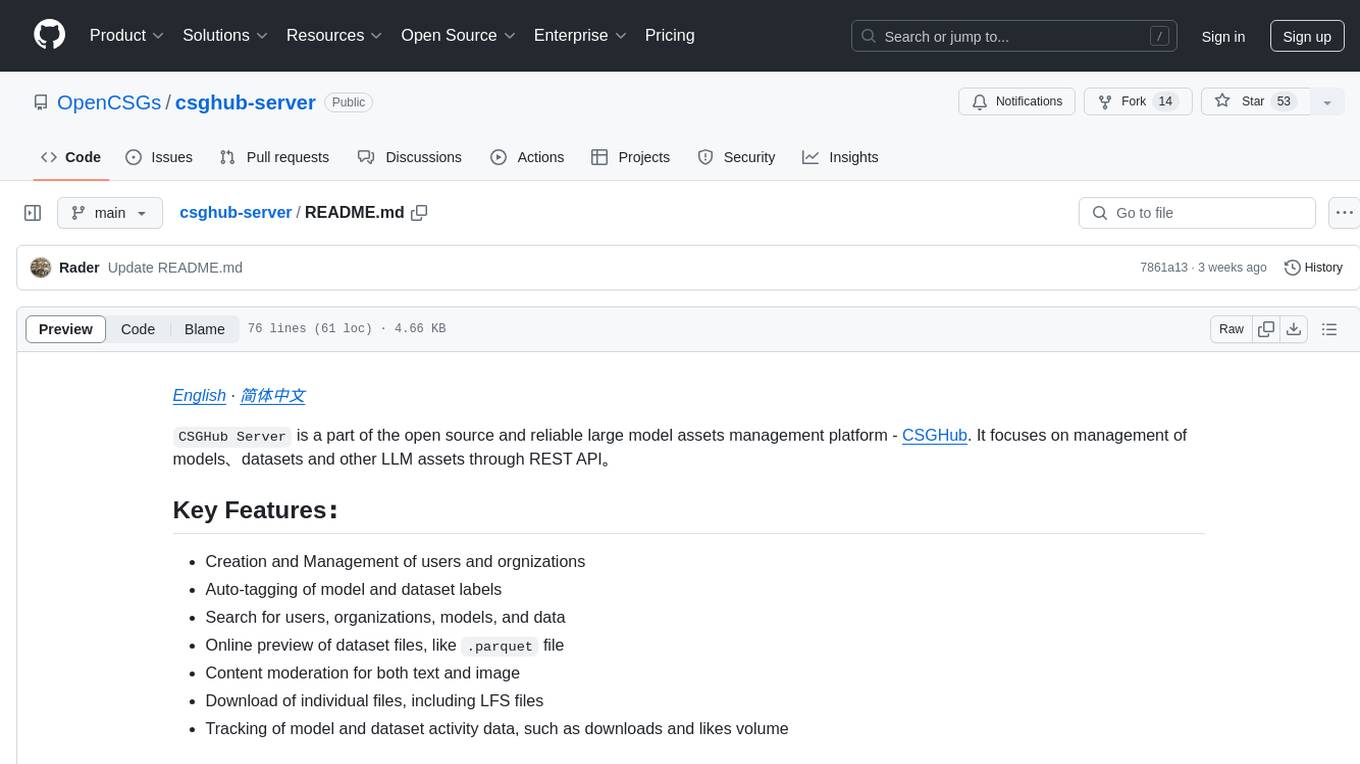
csghub-server
CSGHub Server is a part of the open source and reliable large model assets management platform - CSGHub. It focuses on management of models, datasets, and other LLM assets through REST API. Key features include creation and management of users and organizations, auto-tagging of model and dataset labels, search functionality, online preview of dataset files, content moderation for text and image, download of individual files, tracking of model and dataset activity data. The tool is extensible and customizable, supporting different git servers, flexible LFS storage system configuration, and content moderation options. The roadmap includes support for more Git servers, Git LFS, dataset online viewer, model/dataset auto-tag, S3 protocol support, model format conversion, and model one-click deploy. The project is licensed under Apache 2.0 and welcomes contributions.
For similar jobs

sweep
Sweep is an AI junior developer that turns bugs and feature requests into code changes. It automatically handles developer experience improvements like adding type hints and improving test coverage.

teams-ai
The Teams AI Library is a software development kit (SDK) that helps developers create bots that can interact with Teams and Microsoft 365 applications. It is built on top of the Bot Framework SDK and simplifies the process of developing bots that interact with Teams' artificial intelligence capabilities. The SDK is available for JavaScript/TypeScript, .NET, and Python.

ai-guide
This guide is dedicated to Large Language Models (LLMs) that you can run on your home computer. It assumes your PC is a lower-end, non-gaming setup.

classifai
Supercharge WordPress Content Workflows and Engagement with Artificial Intelligence. Tap into leading cloud-based services like OpenAI, Microsoft Azure AI, Google Gemini and IBM Watson to augment your WordPress-powered websites. Publish content faster while improving SEO performance and increasing audience engagement. ClassifAI integrates Artificial Intelligence and Machine Learning technologies to lighten your workload and eliminate tedious tasks, giving you more time to create original content that matters.

chatbot-ui
Chatbot UI is an open-source AI chat app that allows users to create and deploy their own AI chatbots. It is easy to use and can be customized to fit any need. Chatbot UI is perfect for businesses, developers, and anyone who wants to create a chatbot.

BricksLLM
BricksLLM is a cloud native AI gateway written in Go. Currently, it provides native support for OpenAI, Anthropic, Azure OpenAI and vLLM. BricksLLM aims to provide enterprise level infrastructure that can power any LLM production use cases. Here are some use cases for BricksLLM: * Set LLM usage limits for users on different pricing tiers * Track LLM usage on a per user and per organization basis * Block or redact requests containing PIIs * Improve LLM reliability with failovers, retries and caching * Distribute API keys with rate limits and cost limits for internal development/production use cases * Distribute API keys with rate limits and cost limits for students

uAgents
uAgents is a Python library developed by Fetch.ai that allows for the creation of autonomous AI agents. These agents can perform various tasks on a schedule or take action on various events. uAgents are easy to create and manage, and they are connected to a fast-growing network of other uAgents. They are also secure, with cryptographically secured messages and wallets.

griptape
Griptape is a modular Python framework for building AI-powered applications that securely connect to your enterprise data and APIs. It offers developers the ability to maintain control and flexibility at every step. Griptape's core components include Structures (Agents, Pipelines, and Workflows), Tasks, Tools, Memory (Conversation Memory, Task Memory, and Meta Memory), Drivers (Prompt and Embedding Drivers, Vector Store Drivers, Image Generation Drivers, Image Query Drivers, SQL Drivers, Web Scraper Drivers, and Conversation Memory Drivers), Engines (Query Engines, Extraction Engines, Summary Engines, Image Generation Engines, and Image Query Engines), and additional components (Rulesets, Loaders, Artifacts, Chunkers, and Tokenizers). Griptape enables developers to create AI-powered applications with ease and efficiency.
